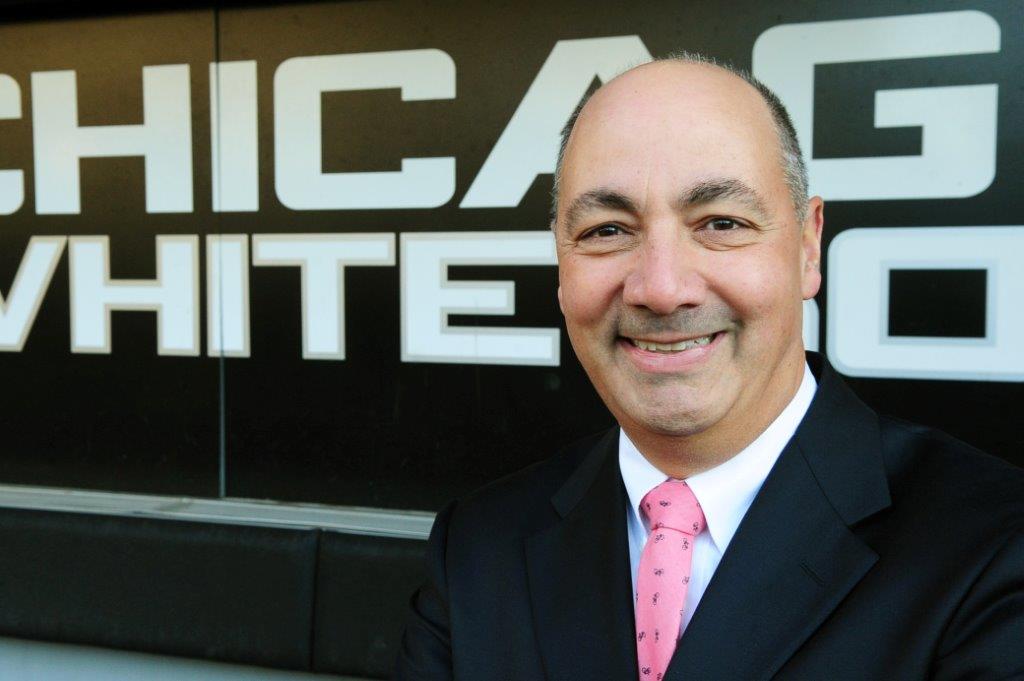 Many orthopedic surgeons and sports medicine physicians dream of taking care of professional athletes, but it takes time to build a trustworthy reputation and once you get there, it's not just taking care of the stars.
Many orthopedic surgeons and sports medicine physicians dream of taking care of professional athletes, but it takes time to build a trustworthy reputation and once you get there, it's not just taking care of the stars.
"Being a team physician is the ultimate concierge physician," says Charles Bush-Joseph, MD, an orthopedic surgeon with Midwest Orthopaedics at Rush, head team physician for the Chicago White Sox and associate team physician for the Chicago Bulls. "You become responsible for the health and welfare of the team roster — all the players on the Major League roster in addition to overseeing the minor league players. I have players in Chicago as well as around 150 minor league players around the country."
He also serves as a physician for the team's staff and family members, and helps triage care even beyond orthopedics. And he does this in addition to running a full, busy orthopedic practice. Many team physicians also conduct research and engage in other professional responsibilities and leadership positions.
For example, Dr. Bush-Joseph served as the president of the MLB Team Physician's Association and on the board of directors for multiple years. During his tenure, Dr. Bush Joseph and other board members worked to make the game safer for athletes and establish good medical policy.
"A lot of improvements came to fruition," he says. "The blood tests, cardiac testing, looking at player safety and changing baseball to eliminate concussions at home plate came out of the advisory committee. Those things that help move the needle are really rewarding."
But he didn't just come out of practice and begin taking care of the pros.
"If you are a sports medicine physician like me, you start out with high school and college athletes," says Dr. Bush Joseph. "Our goal is always to be the head team physician or an orthopedic surgeon for Division I teams or pro athletes."
These athletes are performing at the highest level possible and treatment leaving them anywhere below the optimal level has an impact on the athlete's future. Bringing them back to play is important, but in the long-term the athletes must have sustained success for future contract negotiations. These treatments are also magnified in the media.
"The successes, failures and complications are much more obvious because the press and media attention around these athletes," says Dr. Bush-Joseph. "The fans want to know how the athletes are recovering."
Many of the injuries are common issues for athletes, but unique situations arise from time-to-time. For example, a few years ago then-White Sox pitcher Jake Peavy ruptured his latissimus dorsi muscle while pitching. Some athletes who sustained similar injuries have returned to play without surgical treatment, Dr. Bush-Joseph and his partners felt Mr. Peavy would have a better chance to prolong his career after a surgical procedure.
"We thought his ability to continue at a starter level would diminish," says Dr. Bush-Joseph. "We performed the surgery and it went well. Successes like that can be very exciting and invigorating to everyone. By the same token, there are failures and there are team physicians for other major league teams that have lost their positions because of a complication or delay in diagnosis."
Over the years, Dr. Bush-Joseph and his partners have been able to avoid the negative attention. He learned to over-communicate with athletes he treats, which means talking to the athlete's family, agents and the team's general manager to update everyone.
Another lesson he has learned is to check his ego at the door.
"We always consult with the athletes and encourage them to bring in other opinions," says Dr. Bush-Joseph. "You have to be willing to say, 'Although I'm an expert in this area, I want other colleagues to look at the situation and verify the procedure.' If we do surgery on a pro athlete, we have two attending-level physicians there for the sake of making sure we are double-checking every element of judgment."
One of the most memorable moments for Dr. Bush-Joseph was when the White Sox won the World Series in 2005. The team went 99-63 in the regular season and only lost one game in the post-season. The team swept the Houston Astros in the championship series, but the team was by no means completely dominant.
"The tension was so thick, and every decision you made had huge importance," says Dr. Bush-Joseph. "When you step back and look at it, it's just a season, but the medical nuances that went on throughout the year allowed the players to go out on the field every night. For me to help the team succeed and win the ultimate championship — that's why we're in the game. We play for the victories and mourn the losses."
At the end of the day, Dr. Bush-Joseph's work with professional athletes brings him closer to his patients. It's a conversation-starter for fans and sometimes patients even arrive at his office wearing their favorite player's jersey.
"Sometimes they wear a Chicago Cubs jersey to get a rise out of me," says Dr. Bush-Joseph. "It's a point of conversation from every reaction. The fans like to live vicariously through you. I grew up a Detroit Tiger fan and still have an allegiance to them, but the White Sox is the team I live and die with."


